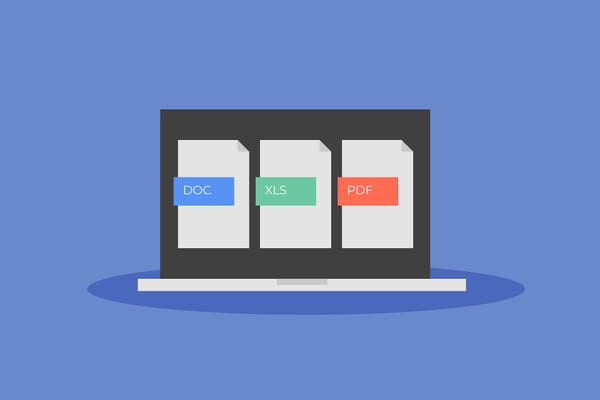Some Free File Converters Aren’t as Safe as They Seem — Here’s Why

Turning a PDF into a Word document, converting a PowerPoint into a PDF, or opening a lesser-known format with free tools found on the internet is something we've all done at some point—especially when we're in a hurry.
Free document conversion websites make this easy, and many of them seem harmless. But according to the FBI, some of these tools are doing more than just converting files. They're quietly infecting devices with malware.
Why You Should Be Cautious
The FBI's Denver Field Office recently warned that cybercriminals are using free file converters to spread malicious software. These tools do what they promise—convert your files—but also deliver hidden malware in the background.
You may think you're just uploading a file to convert it from one format to another. But behind the scenes, these shady sites might steal personal data or give hackers access to your device. In some cases, the malware can lead to full-blown ransomware attacks or identity theft.
How the Scam Works
The scam often starts on websites that offer to convert files—like turning a .doc into a .pdf, merging several images into one document, or downloading media files such as MP3s or MP4s. These sites often look professional, and many of them rank high in Google search results, which can give the impression that they're safe to use. But that appearance can be misleading. While they may complete the task as promised, the file you get back could be hiding malware. Once opened, that file can silently infect your device, steal your personal information, or give hackers a backdoor into your system.
These online tools don't just pose a risk of infecting your device—they can also quietly pull sensitive information from the files you upload. If your document contains personal data like your Social Security number, date of birth, or phone number, that information can be extracted and misused. Cybercriminals can also harvest financial details, including bank account numbers or credit card info hidden in invoices or receipts. If you store cryptocurrency details in a file—like seed phrases, wallet addresses, or private keys—those too can be stolen. Even email addresses, login credentials, and passwords tucked away in documents are at risk.
Once this kind of information is in the wrong hands, it can be used for identity theft, financial fraud, or breaking into your other accounts.
Most victims don't realize what's happened until it's too late—when their computer slows down, locks them out of important files, or worse, demands a ransom to get their data back.
Related articles:
- SEO Poisoning: How Hackers Use Search Engines to Target Businesses Like Yours
- Small Business Ransomware: What You Need to Know and How to Stay Safe
- What Is Business Identity Theft and How to Protect Your Business
What to do to stay safe
Slow down and think before using free online tools. Here are a few steps to stay safer:
- Keep your antivirus software updated and running at all times.
- Check links with Bitdefender Link Checker. With this FREE tool, you can instantly check URLs you encounter or receive on social media, email, or instant messaging apps. It flags potentially harmful sites before you click, allowing you to avoid phishing traps.
- Always scan downloaded files—especially if they come from unfamiliar websites.
- Be cautious of unexpected file types like .exe or .bat. If you're expecting a document, you shouldn't be getting an executable file.
And if you think you may have been a victim, report it to the FBI at www.ic3.gov.
Smarter Ways to Handle File Conversion
To avoid the risks of malicious converters, here are safer ways to get the job done:
- Stick to trusted software. Use programs like Adobe Acrobat, Microsoft Word, or LibreOffice. These are built by companies with strong security practices in place.
- Look into cloud tools. Google Drive, Microsoft 365, and similar platforms have built-in file conversion features and don't require sketchy downloads.
- Research before using. If you're about to use an unfamiliar online tool, search for reviews or security warnings first. If you can't find much about it, that's a red flag.
- Avoid suspicious downloads. Never run files with extensions like .exe, .scr, or .bat unless you're absolutely sure where they came from.
- Run a virus scan every time. Even if the file looks fine, always scan it with updated security software before opening.
- Watch file permissions. If a document starts asking for unexpected access or acts strangely, delete it right away.
- Back up your files. Keep regular backups of important documents in a secure location—either on an external hard drive or a protected cloud service.
- Skip browser extensions. Many file conversion browser add-ons come bundled with adware or tracking tools. It's better to avoid them altogether.
- Invest in a reliable service. If you convert documents often for work, it might be worth paying for a tool that puts security first.
The Bigger Picture: Security vs. Convenience
We all love convenience. But when it comes to free tools online, it's easy to assume a polished website or top Google result means something is safe. Cybercriminals know this—and they use it against people.
The real problem isn't just malware hiding in converted documents. It's the habit of giving away our data too easily, without stopping to ask: "Who am I trusting with this file?"
The next time you need to convert a document, take a second to think. A few extra minutes choosing a safer option could save you a world of trouble.
If you run a business—even a very small one—it's worth taking extra steps to protect your devices and data. Bitdefender Ultimate Small Business Security is designed to do just that.
It offers powerful protection against malware, phishing, ransomware, and online scams, while also helping you secure sensitive files, emails, and login details. With built-in features like scam and fraud protection, device security, and a password manager, it gives you peace of mind without adding extra work to your day.
Check out our plans for small businesses.
tags
Author
Cristina is a freelance writer and a mother of two living in Denmark. Her 15 years experience in communication includes developing content for tv, online, mobile apps, and a chatbot.
View all postsRight now Top posts
Outpacing Cyberthreats: Bitdefender Together with Scuderia Ferrari HP in 2025
March 12, 2025
Streamjacking Scams On YouTube Leverage CS2 Pro Player Championships to Defraud Gamers
February 20, 2025
How to Identify and Protect Yourself from Gaming Laptop Scams
February 11, 2025
Your Device ‘Fingerprint’ Will Go to Advertisers Starting February 2025
December 24, 2024
FOLLOW US ON SOCIAL MEDIA
You might also like
Bookmarks






